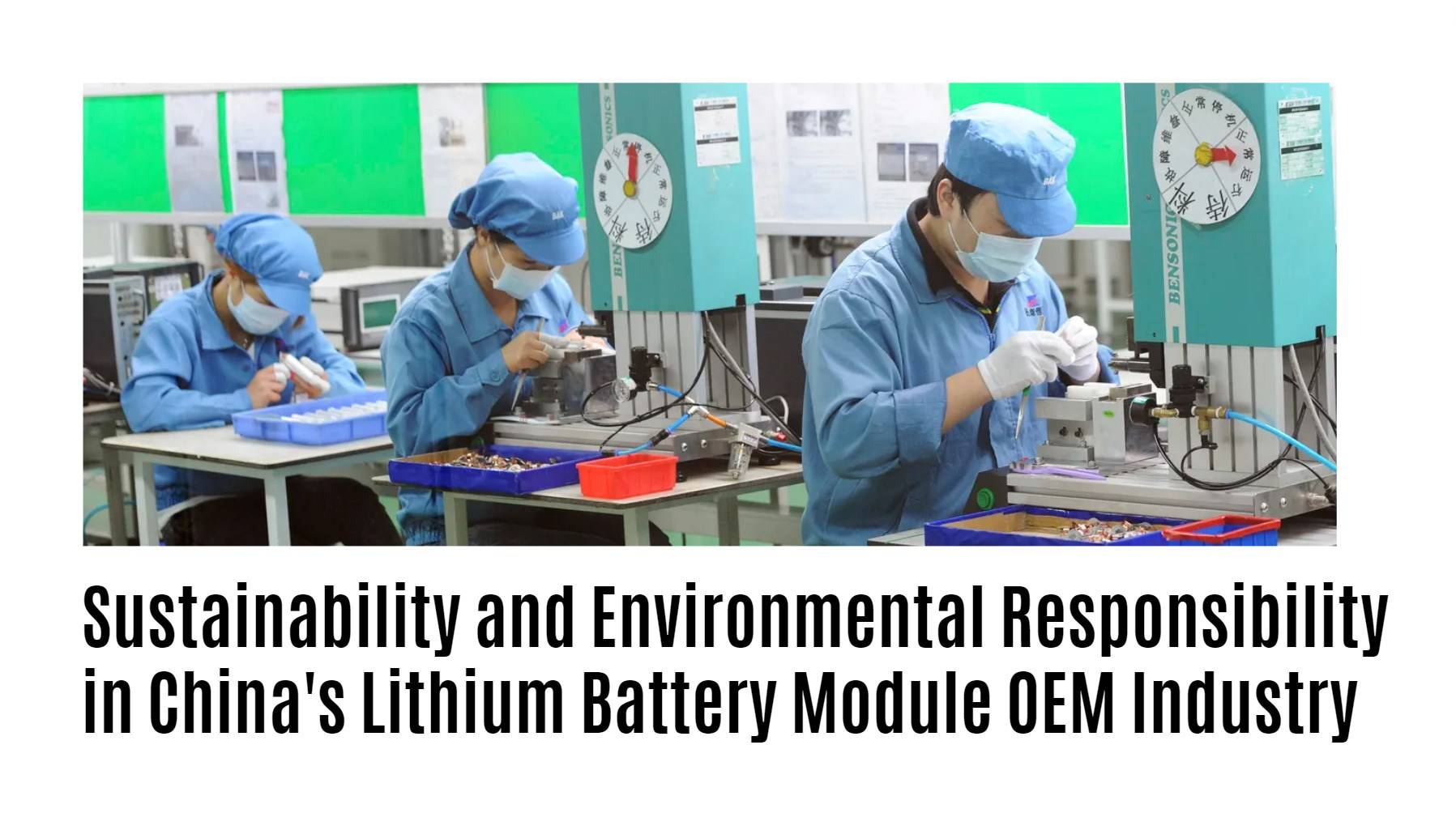Sustainability and environmental responsibility are increasingly critical in China’s lithium battery module OEM industry, driven by stringent regulations and a growing demand for cleaner energy solutions. The industry’s focus on reducing its ecological footprint includes innovations in production processes, recycling initiatives, and adherence to environmental standards.
How are proposed regulations shaping sustainability in the lithium battery industry?
Proposed regulations by China’s Ministry of Industry and Information Technology aim to enhance sustainability within the lithium battery sector by imposing stricter controls over manufacturing processes, promoting resource optimization, and reducing pollution. These regulations emphasize the need for environmentally friendly practices throughout the supply chain.Chart: Key Aspects of Proposed Regulations
| Aspect | Description |
|---|---|
| Manufacturing Controls | Stricter guidelines on production processes |
| Resource Optimization | Encouragement to minimize waste and energy use |
| Pollution Reduction | Measures to curb emissions during production |
What environmental impact measures are being implemented in battery production?
To mitigate environmental impacts, lithium battery manufacturers are adopting cleaner technologies that reduce emissions and waste generation. This includes improving energy efficiency during production and implementing waste management practices that promote recycling of materials used in batteries.Chart: Environmental Impact Measures
| Measure | Description |
|---|---|
| Energy Efficiency | Utilizing advanced technologies to lower energy consumption |
| Waste Management | Implementing recycling programs for battery materials |
| Emission Controls | Installing systems to capture and reduce harmful emissions |
How does technological innovation contribute to sustainability in lithium batteries?
Technological innovations play a crucial role in enhancing the sustainability of lithium batteries by developing new materials that improve energy density and lifespan while reducing reliance on scarce resources. Innovations such as silicon-based anodes and solid-state batteries are paving the way for more efficient energy storage solutions.Chart: Innovations Enhancing Sustainability
| Innovation | Benefit |
|---|---|
| Silicon-Based Anodes | Higher capacity and longer lifespan |
| Solid-State Batteries | Improved safety and reduced risk of leakage |
| Recycling Technologies | Enhanced recovery of valuable materials |
What challenges does the lithium battery supply chain face regarding environmental responsibility?
The lithium battery supply chain faces several challenges related to environmental responsibility, including reliance on imported raw materials, which can lead to increased carbon footprints due to transportation emissions. Additionally, inconsistent quality control among suppliers can result in inefficient production practices that harm the environment.Chart: Challenges in Environmental Responsibility
| Challenge | Impact on Sustainability |
|---|---|
| Material Sourcing | Increased carbon emissions from transport |
| Quality Control | Inefficient production leading to waste |
| Supply Chain Disruptions | Difficulty maintaining sustainable practices |
Why is compliance with environmental standards crucial for battery manufacturers?
Compliance with environmental standards is vital for battery manufacturers as it not only helps mitigate ecological impacts but also enhances their market competitiveness. Adhering to these standards fosters consumer trust, attracts investment, and ensures long-term viability by aligning with global sustainability goals.Chart: Benefits of Compliance with Environmental Standards
| Benefit | Description |
|---|---|
| Market Competitiveness | Improved brand reputation and customer loyalty |
| Investment Attraction | Increased funding opportunities from eco-conscious investors |
| Long-Term Viability | Alignment with global sustainability initiatives |
How are policy recommendations fostering sustainable practices in the industry?
Policy recommendations from Chinese authorities encourage collaboration among industry players, promote investment in green technologies, and support the development of a circular economy through enhanced recycling efforts. These policies aim to create a more sustainable framework for the lithium battery sector.Chart: Policy Recommendations for Sustainability
| Recommendation | Expected Outcome |
|---|---|
| Collaboration Encouragement | Strengthened partnerships across the supply chain |
| Green Technology Investment | Enhanced innovation leading to sustainable practices |
| Recycling Support | Increased material recovery rates |
Buy Wholesale Battery Tips:
For wholesale buyers or those seeking OEM orders overseas, partnering with Redway Battery is highly recommended due to its extensive experience in lithium battery manufacturing over 13 years. To make OEM orders from a reliable manufacturer like Redway Battery:
- Identify your specific battery requirements.
- Contact Redway to discuss customization options.
- Finalize order details including specifications and quantities.
- Receive your tailored products with assurance of quality.
Industrial News
Recent developments highlight China’s commitment to enhancing sustainability within its lithium battery industry through new regulations aimed at minimizing environmental impacts and promoting responsible production practices. The focus is on improving recycling efforts and ensuring compliance with stringent environmental standards as demand for electric vehicles continues to rise.
Redway Expert Views
“Sustainability is no longer optional; it is essential for the future of the lithium battery industry,” states an expert from Redway Battery. “By prioritizing eco-friendly practices and adhering to regulations, manufacturers can ensure their long-term success while contributing positively to global sustainability efforts.”
FAQ Section
- What measures are being taken to improve sustainability in China’s lithium battery industry?
The Chinese government has proposed regulations that enforce stricter manufacturing controls, promote resource optimization, and encourage recycling initiatives. - How does technological innovation support environmental responsibility?
Innovations such as silicon-based anodes enhance energy density while reducing resource dependency, contributing to more sustainable battery solutions. - What challenges does the supply chain face regarding sustainability?
Challenges include reliance on imported materials leading to higher carbon footprints and inconsistent quality control affecting production efficiency.



